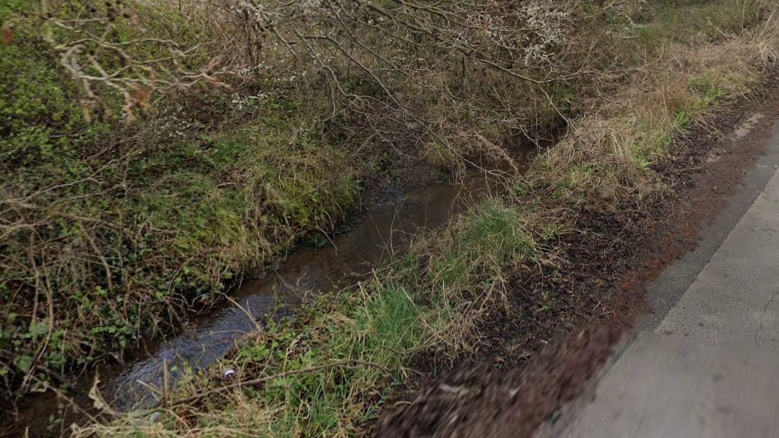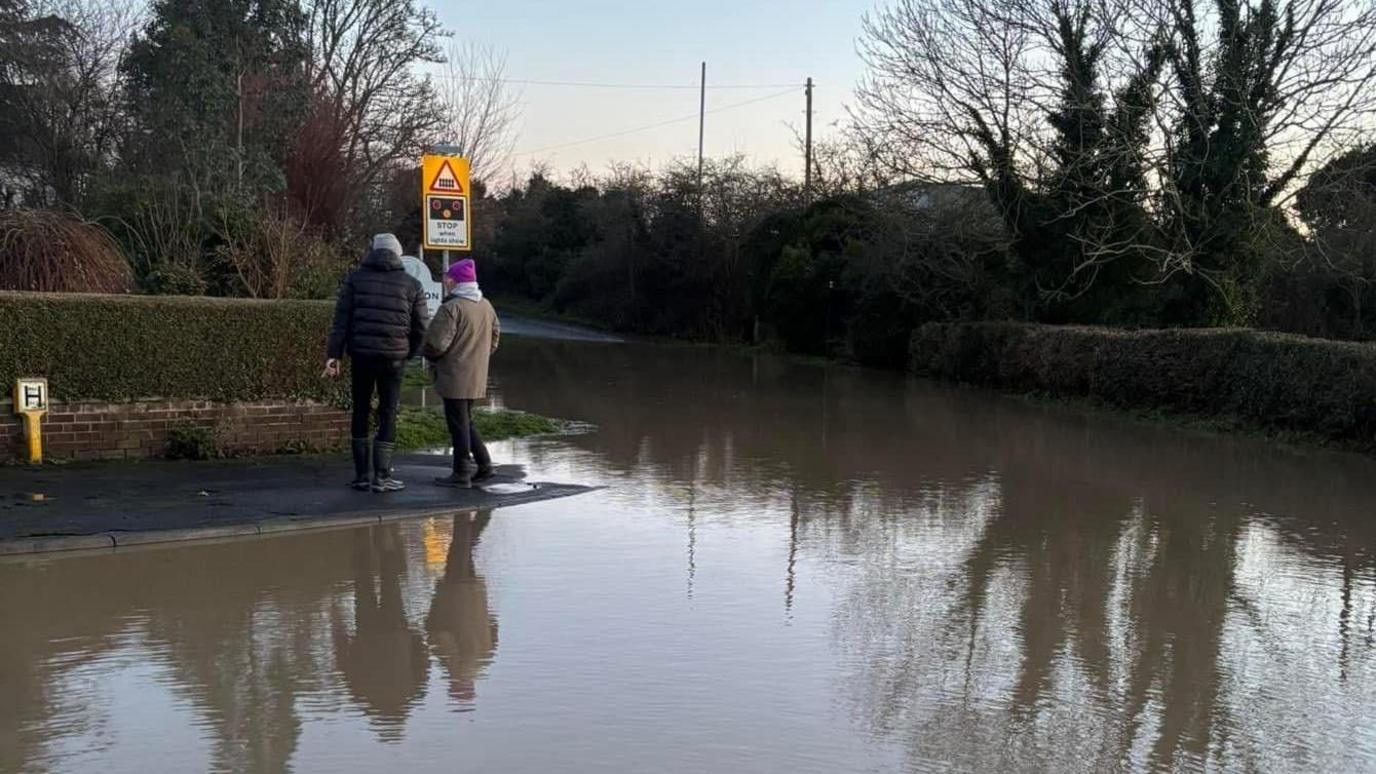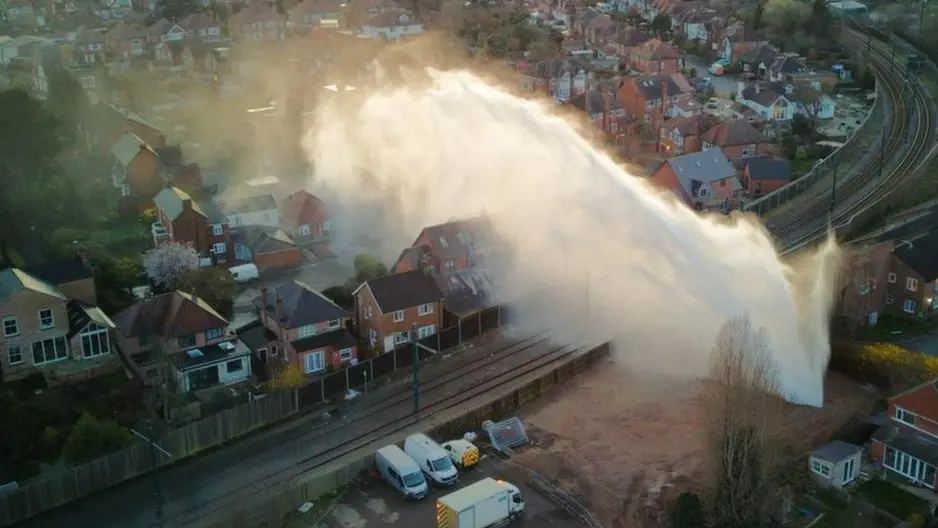City council's £200k scheme to prevent flooding

One of the screens is in Cinderhill Road Stream by Occupation Road in Bulwell
- Published
More than 180 homes in Nottingham are set to benefit from a £200,000 flood protection scheme.
Nottingham City Council published documents on Friday that said it would use money from local transport funding, as part of a budget realignment exercise, to replace trash screens on "ordinary watercourses".
Trash screens are metal barriers that are usually used in narrow waterways such as culverts, pipework and drainage systems to prevent them from becoming blocked by rubbish and to keep water flowing.
A council document showed that, should these screens become 100% blocked, then nearby properties would be at risk of flooding.
The screens are placed at the entrance of culverts "to protect downstream culverts and prevent internal blockages that would cause significant localised flooding", according to documents.
The council said they required regular maintenance and monitoring, as debris can gradually build up on the screens.
The council's flood team commissioned a study of several "key" screens across the city which found five locations in which the screens should be replaced, according to the Local Democracy Reporting Service.
These include Martin's Pond Stream by Old Coach Road, in Wollaton; an upstream and downstream trash screen at Broxtowe Park Brook; Phoenix Park stream at the back of Drysdale Close in Bulwell; and Cinderhill Road Stream by Occupation Road, also in Bulwell.
Get in touch
Tell us which stories we should cover in Nottingham
Follow BBC Nottingham on Facebook, external, on X, external, or on Instagram, external. Send your story ideas to eastmidsnews@bbc.co.uk, external or via WhatsApp, external on 0808 100 2210.
Related topics
- Published9 January

- Published7 January
